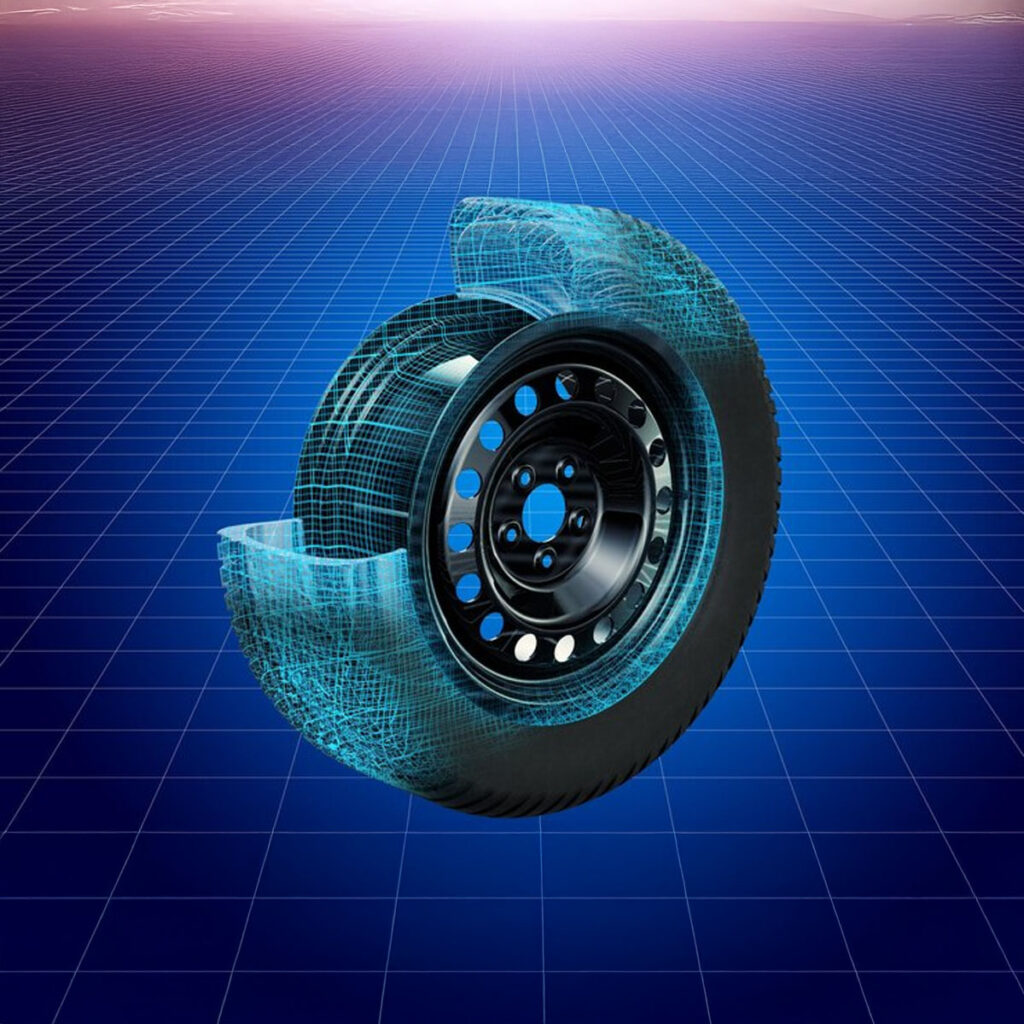The tyre industry is undergoing an unprecedented transformation, driven by technological advancements, environmental considerations, and consumer demands for greater convenience. Innovations such as smart tyres, self-sealing technology, airless designs, and AI-driven analytics are redefining the way tyres are manufactured, maintained, and replaced. Alongside these developments, mobile tyre fitting services have grown rapidly, offering on-demand tyre replacements and emergency roadside assistance for both private and commercial vehicles.
This article provides an in-depth look at the latest breakthroughs in tyre technology, major market trends, the rise of mobile tyre fitting, and what the future holds for the tyre industry. We also highlight key manufacturers leading these innovations and their impact on sustainability, efficiency, and safety.
Smart Tyres: The Digital Evolution
Smart tyres are at the forefront of the next-generation automotive industry. By integrating sensors, artificial intelligence (AI), and the Internet of Things (IoT), these tyres provide real-time feedback on pressure, temperature, and tread wear, significantly improving vehicle performance and safety.
- Pirelli Cyber Tyre: This tyre has an embedded sensor that transmits road conditions to the vehicle’s onboard computer, improving traction and reducing the risk of hydroplaning.
- Michelin’s Visionary Concept: A revolutionary 3D-printed, airless tyre made from biodegradable materials, offering increased durability and sustainability.
- Bridgestone IntelliTire: Designed for fleet operators, it enables predictive maintenance, reducing downtime and saving costs on tyre replacements.
With manufacturers increasingly integrating machine learning algorithms, the next phase of smart tyres is expected to include automated self-repair mechanisms and advanced vehicle communication, allowing tyres to adapt to road conditions in real time.
Airless and Puncture-Proof Tyres: No More Flats
Eliminating punctures has been a long-standing goal for tyre manufacturers. Airless tyres solve this problem by using unique structural designs that eliminate the need for air while maintaining the performance of traditional tyres.
- Michelin’s Uptis (Unique Puncture-Proof Tire System): A breakthrough airless tyre concept that aims to replace traditional pneumatic tyres entirely by 2030.
- Bridgestone Air Free Concept: Uses thermoplastic resin support structures instead of compressed air, providing unmatched durability and flexibility.
These tyres are particularly beneficial for electric vehicles (EVs) and commercial fleets, as they reduce maintenance costs and increase road safety by preventing blowouts.
Self-Sealing Tyres: Minimising Roadside Emergencies
Self-sealing tyre technology has rapidly evolved, with manufacturers like Continental and Goodyear developing tyres that can automatically seal small punctures, eliminating the immediate need for repair.
- Continental ContiSeal: Capable of sealing punctures up to 5mm in diameter instantly.
- Goodyear’s SealTech: Utilises a high-tech polymer that seals leaks, preventing pressure loss and ensuring extended tyre life.
This technology is especially useful for long-distance drivers, fleet managers, and emergency responders, reducing downtime and increasing vehicle safety.
Sustainable and Recyclable Tyres: The Green Revolution
With climate change concerns at an all-time high, tyre manufacturers are shifting toward eco-friendly production methods. Innovations in materials and design are ensuring that tyres are not only more durable but also significantly more sustainable.
- Goodyear BioTRED: Uses soybean oil, dandelion rubber, and silica from rice husk ash instead of petroleum-based materials.
- Michelin Green Concept: Aims to manufacture tyres from 100% renewable and biodegradable resources by 2050.
- Bridgestone’s Circular Economy Approach: Focuses on producing fully recyclable tyres with reduced rolling resistance, improving fuel efficiency.
These advancements not only lower carbon emissions but also help in reducing waste, with companies increasingly adopting closed-loop recycling systems.


The Rise of Mobile Tyre Fitting Services
Mobile tyre fitting services bring tyre replacement and repair directly to consumers, offering an unmatched level of convenience. Whether at home, work, or on the roadside, certified technicians arrive equipped with the necessary tools to fit, balance, and align tyres efficiently.
Key Benefits of Mobile Tyre Fitting
- Convenience & Flexibility: No need for a trip to the garage; tyre services come to you.
- Time-Saving: Avoid waiting times and get quick replacements.
- Emergency Roadside Assistance: Get tyres changed immediately after a puncture.
- Customised Solutions: Many providers offer wheel balancing, seasonal tyre swaps, and TPMS recalibration.
Leading Mobile Tyre Fitting Providers
Several companies have become major players in mobile tyre fitting services worldwide:
- Olympus Mobile Tyre Fitting (UK): Premier mobile tyre replacement service covering London and surrounding areas.
- Mobile Tyre Shop (Australia): Fleet-focused tyre solutions and emergency roadside support.
- Tread Connection (USA): Specialises in mobile tyre services for both individual drivers and business fleets.
Market Trends and Industry Growth
The global tyre industry is projected to exceed USD 150 billion by 2030, driven by the rise of electric vehicles, connected mobility, and sustainable innovations. Key trends shaping the industry include:
- Growth of Electric Vehicles (EVs): Tyre manufacturers are focusing on low rolling resistance tyres, which improve battery range and efficiency.
- Fleet Management Solutions: AI-driven predictive maintenance for tyres is becoming standard for logistics companies.
- Government Regulations: New laws are pushing for low-emission, environmentally friendly tyre materials.
- Tyre Subscription Models: Companies are adopting pay-per-use tyre leasing services, reducing upfront costs for consumers.
The Future of Tyre Technology and Mobile Tyre Fitting
The next decade will see significant innovations, including:
- AI-Driven Tyre Monitoring: Tyres capable of self-diagnosing wear and tear.
- 3D-Printed Tyres: Custom-built tyres tailored to a driver’s unique usage patterns.
- Energy-Harvesting Tyres: Tyres that generate electricity from movement to charge EV batteries.
- Autonomous Tyre Replacement Systems: Robotics and drones will handle tyre replacements without human intervention.
As the industry moves toward automation, sustainability, and AI-driven solutions, mobile tyre fitting will continue to expand globally, integrating with automated service stations and connected car systems.
Conclusion
Tyre technology is advancing rapidly, introducing smarter, safer, and more sustainable solutions. Mobile tyre fitting services are reshaping how consumers manage tyre maintenance, offering unparalleled convenience and efficiency. With ongoing investments in innovation, digital transformation, and AI-based solutions, the tyre industry is set to become more adaptable, cost-effective, and environmentally friendly than ever before.
